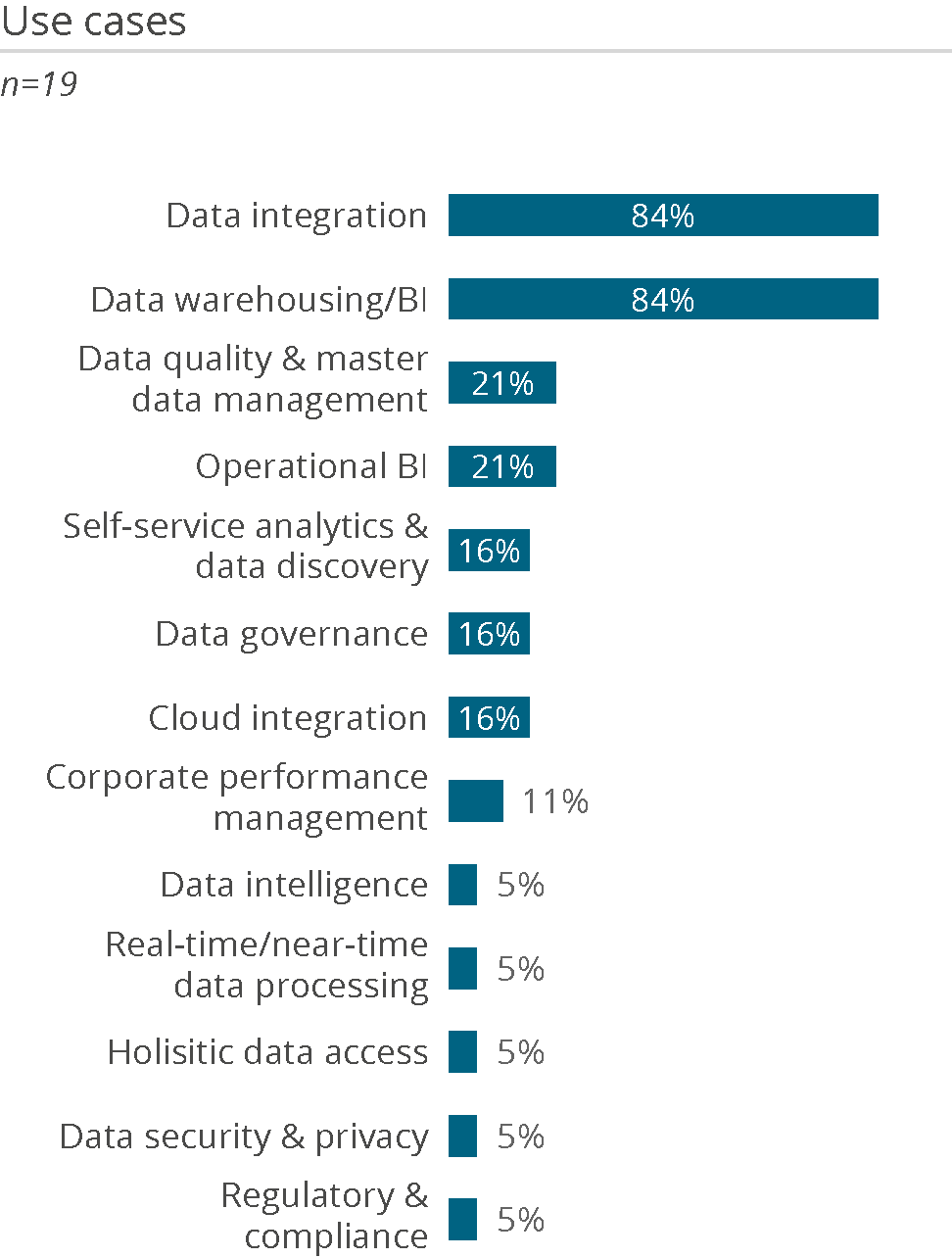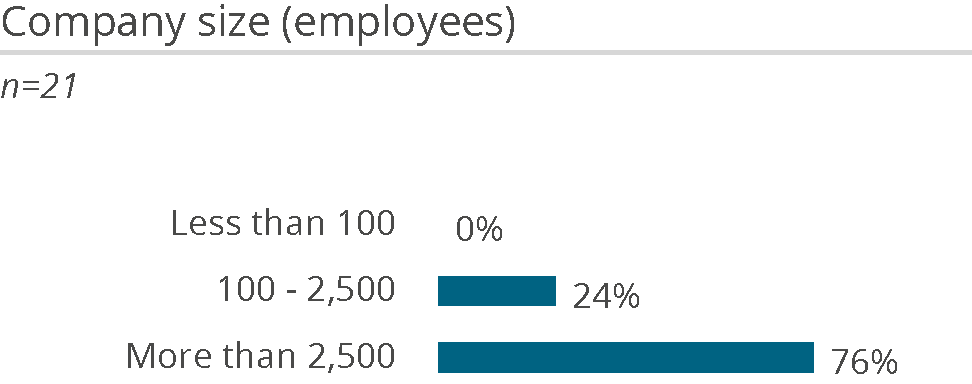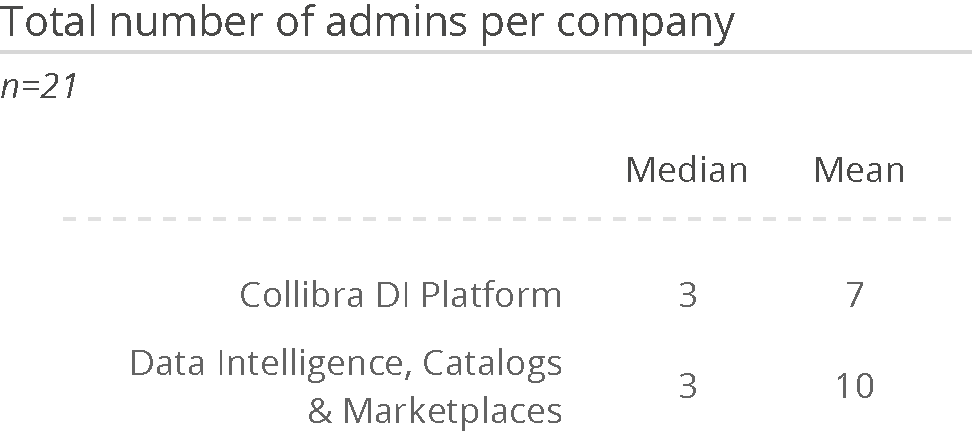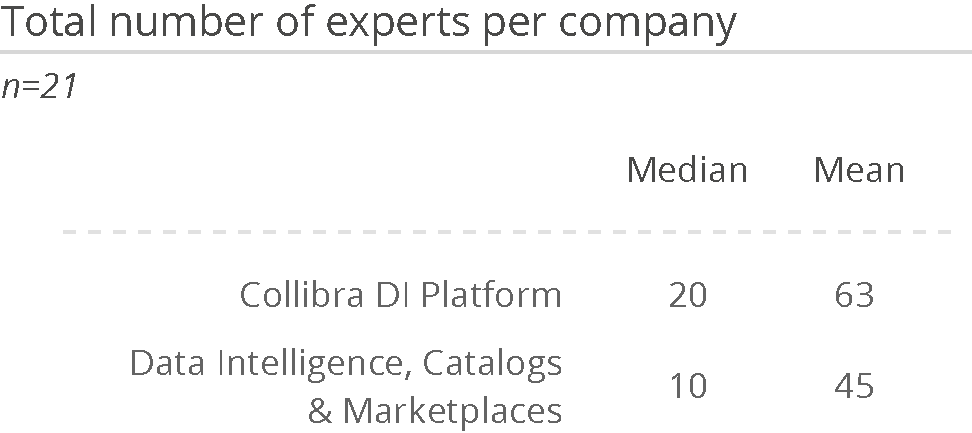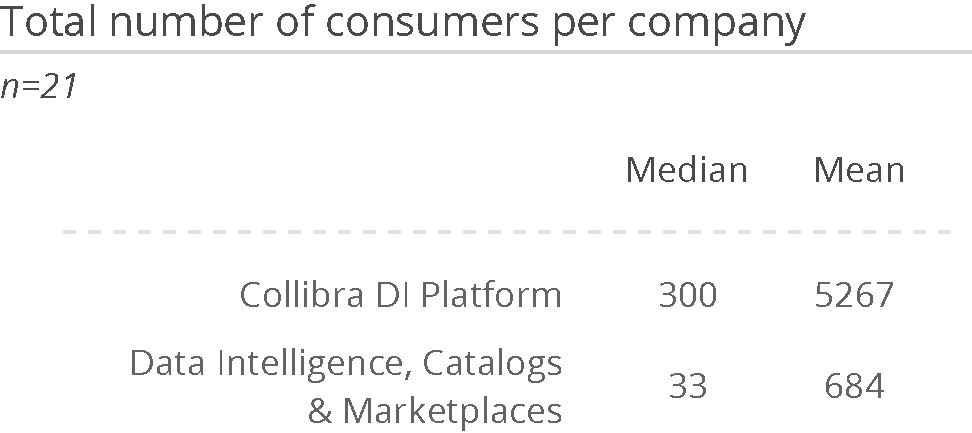Collibra Data Intelligence Platform
What is Collibra Data Intelligence Platform?
A platform for data intelligence and metadata that provides features such as Search & Discovery, Collaboration, Data Governance, Data Quality, Data Marketplace, and Data Lineage, suitable even for large organizations.
About Collibra Data Intelligence Platform
Self-description of the vendor
Would you like to find out more about BARC reviews? Our FAQs answer the most important questions.
Collibra Data Intelligence Platform BARC Review & Rating
Provider and product description
Collibra, founded in 2008, has established itself as a specialist in data governance and data intelligence. The company’s mission is to revolutionize how organizations leverage data, aiming to provide trusted data for various uses and users across multiple sources. A privately owned entity, Collibra has a global presence with 12 offices across the United States, APAC and Europe and over 1,000 employees, with around 40 percent dedicated to research and development. The company has over 700 customers, achieved through a direct sales model and a sophisticated marketing strategy supported by thought leadership. This global brand recognition is further amplified by its ecosystem of over 200 technology and service partners, emphasizing partnerships through co-development, product alignment and go-to-market strategies.
The Collibra Data Intelligence Platform, a unified system for engaging with data, focuses on the collection, linking and analysis of metadata. The platform is tailored to various user personas and is bolstered by customer enablement initiatives such as coaching, education, a marketplace for template exchange, and specialized service offerings called accelerators.
The product’s evolution is noteworthy, starting as a business glossary and growing into a comprehensive data intelligence solution. Collibra’s toolkit has expanded to include cataloging, data protection, technical lineage, privacy and data quality, thanks to acquisitions such as SQLdep, OwlDQ and Husprey. These have allowed the platform to delve deeper into analyzing technical, governance and operational metadata. Additionally, advanced data quality and data observability capabilities can be integrated into the platform, highlighting its adaptability and expansion into broader data management domains.
Notably, the platform has evolved from focusing on business metadata in its glossary and data catalog origins to providing deeper operational and technical insights. Its capabilities are not confined to governance; they also encompass search and discovery use cases and modern data approaches, such as data product thinking. The platform’s strength in data governance is evident in its comprehensive workflow and user management, granular policy management and data quality features. While its complexity has been a point of user feedback, this has been addressed through the Data Marketplace approach, providing a streamlined interface for accessing curated data assets.
AI integration is a significant highlight, automating catalog tasks, supporting metadata curation and enabling content generation, including asset descriptions and SQL code. AI also aids in data classification and offers user-centric content recommendations. Furthermore, the platform’s features to drive user adoption and monitor data value stand out. Users can define and measure data impact and value, facilitating engagement through “@” mentions, assigning users to workflows and highlighting subject matter experts.
Looking ahead, Collibra’s roadmap includes some significant improvements, including:
- Architecture for enterprise-wide scale and adoption (e.g., by leveraging AI for automated curation);
- Collaboration and consumption (e.g., by guided experiences around data products and an enhanced search experience); and
- Supporting new demand for AI (e.g., by integration with more service providers).
Strengths and challenges of Collibra Data Intelligence Platform
BARC’s viewpoint on the product’s strengths and challenges.
Strengths
- Comprehensive coverage: Collibra Data Intelligence Platform offers good functional support for search & discovery, data governance, data marketplaces, collaboration and customer enablement use cases.
- AI innovation: Automation capabilities and self-learning AI algorithms help to enhance user experience and reduce administrative efforts. The first features built on GenAI are now available (e.g., automated generation of descriptions for data assets in the catalog).
- Integrated marketplace for customer enablement: Collibra’s integrated marketplace is somewhat unique in this market segment. Functional extensions can be purchased to enhance the platform with, for example, integrations, workflows, UI add-ons and reporting.
Challenges
- Restricted licensing flexibility: Users state that the licensing model can be a bit too restrictive. For example, with the exception of read-only users, Collibra previously made no distinction between heavy users and very occasional users in its pricing. However, the license model has recently been updated to provide more flexibility to adapt to users’ needs. Among other things, the free ‘Viewer’ licenses have been revised, which enable the basic use of standard functionality, while a ‘Contributor’ license enables the use of workflows and active participation through, for example, comments or ratings.
- User ecosystem integration: Collibra provides a long list of connectors to extract and exchange metadata from source systems. While the vendor is working hard to extend its partner and ecosystem landscape, there are still some gaps. For example, it lacks out-of-the-box integration options in user tools and workflows to get a more seamless user experience in consuming metadata (e.g., for collaboration tools such as Microsoft Teams, Slack and Jira). Instead, Collibra provides workflows and APIs that allow customers to configure their integrations. Implementation rests with the customer, leading to additional effort.
Collibra Data Intelligence Platform User Reviews & Experiences
The information contained in this section is based on user feedback and actual experience with Collibra Data Intelligence Platform.
The information and figures are largely drawn from BARC’s The BI & Analytics Survey, The Planning Survey, The Financial Consolidation Survey and The Data Management Survey. You can find out more about these surveys by clicking on the relevant links.
Who uses Collibra Data Intelligence Platform in a data management context and how
Why users buy Collibra Data Intelligence Platform and what problems they have using it
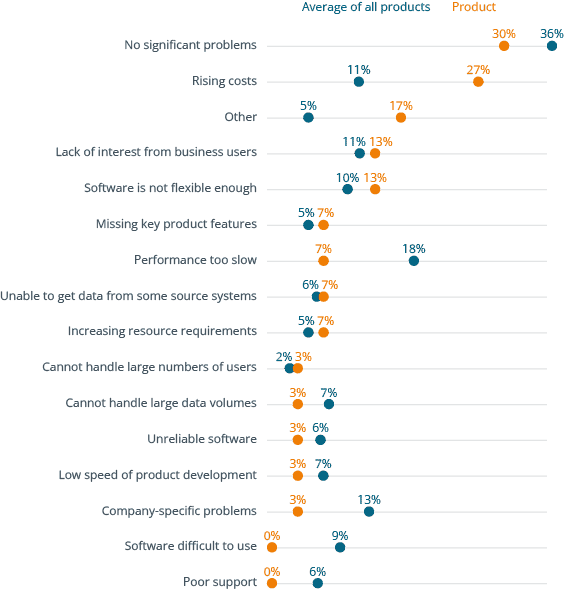
- Get independent information on software solutions, market developments and trends in data, analytics, business intelligence, data science and corporate performance management.
- Make data & analytics decisions based on numbers, data, facts and expert knowledge
- Access to all premium articles and all our research, including all software comparison studies, scores and surveys.
- Unlimited access to the BARC media library
- Consume unlimited content anywhere
Full user reviews and KPI results for Collibra Data Intelligence Platform
All key figures for Collibra Data Intelligence Platform at a glance.
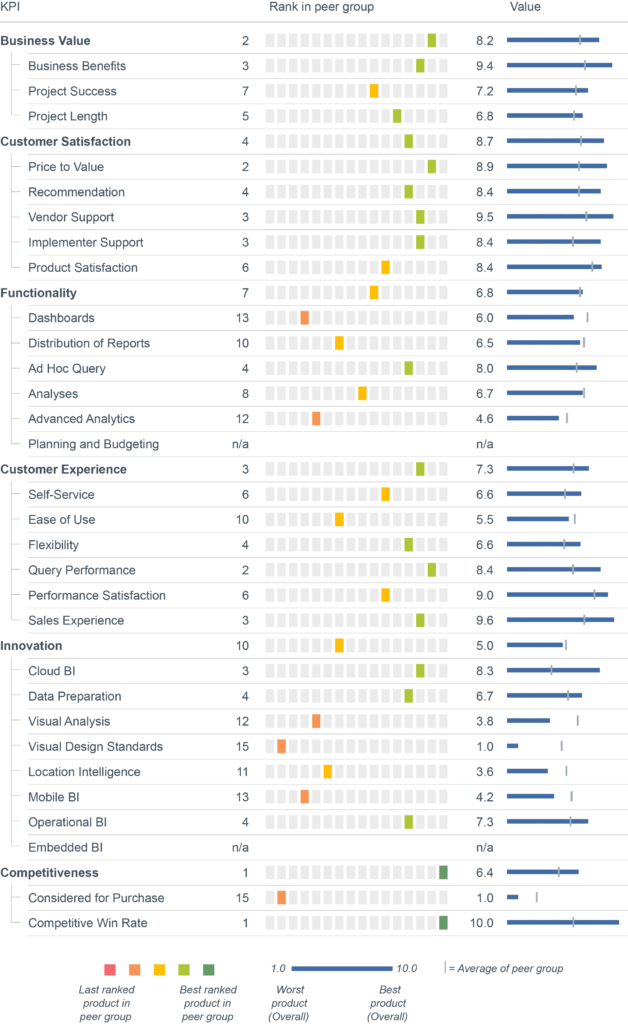
- Get independent information on software solutions, market developments and trends in data, analytics, business intelligence, data science and corporate performance management.
- Make data & analytics decisions based on numbers, data, facts and expert knowledge
- Access to all premium articles and all our research, including all software comparison studies, scores and surveys.
- Unlimited access to the BARC media library
- Consume unlimited content anywhere
Individual user reviews for Collibra Data Intelligence Platform
Number of employees
Industry
Source
What do you like best?
Expertise provided after the sale. Platform is very flexible.
What do you like least/what could be improved?
User Experience is challenging for new users to navigate. Part of this is our fault. We have not yet implemented the new UI (we plan to do this in Summer 2024).
What key advice would you give to other companies looking to introduce/use the product?
Consider how the features that are available can support your needs. Protect and AI Governance are two features we do not use which may be very interesting to leverage.
How would you sum up your experience?
It's a good tool. Collibra is investing into improving the platform, particularly with AI Governance, and modernizing the UI/UX.
Number of employees
Industry
Source
What do you like best?
It is reliable.
What do you like least/what could be improved?
User experience is poor. Even with the new UI it's still very difficult to understand what is happening. Search bar does not work properly and there is no intent to change it - fuzzy search is non existent. Finding a data element when it has different possible spelling is very difficult.
What key advice would you give to other companies looking to introduce/use the product?
Make sure you test the use cases you have in mind with real scenarios, using also business people. Don't let a consultancy company oversell you the capacity of the tool.
How would you sum up your experience?
It is a complicated tool to use out of the box, specially for people not involved in data management (IT or business). Metadata is not very accesible, and even the integration between Collibra tools is not easy.
Number of employees
Industry
Source
What do you like best?
Sehr intuitives, anwenderfreundliches und flexibles Tool.
What do you like least/what could be improved?
Es wäre klasse, wenn Collibra eine native Integration mit JIRA und Microsoft Dynamics haben würde (und nicht über die Drittanbieter).
What key advice would you give to other companies looking to introduce/use the product?
Nutzen Sie vom ersten Tag die Professional Services von Collibra, die Kollegen von Professional Services sind sehr gut, Sie ersparen sich paar Monate Zeit.
How would you sum up your experience?
Ich liebe das Tool und kann es nur weiterempfehlen.
